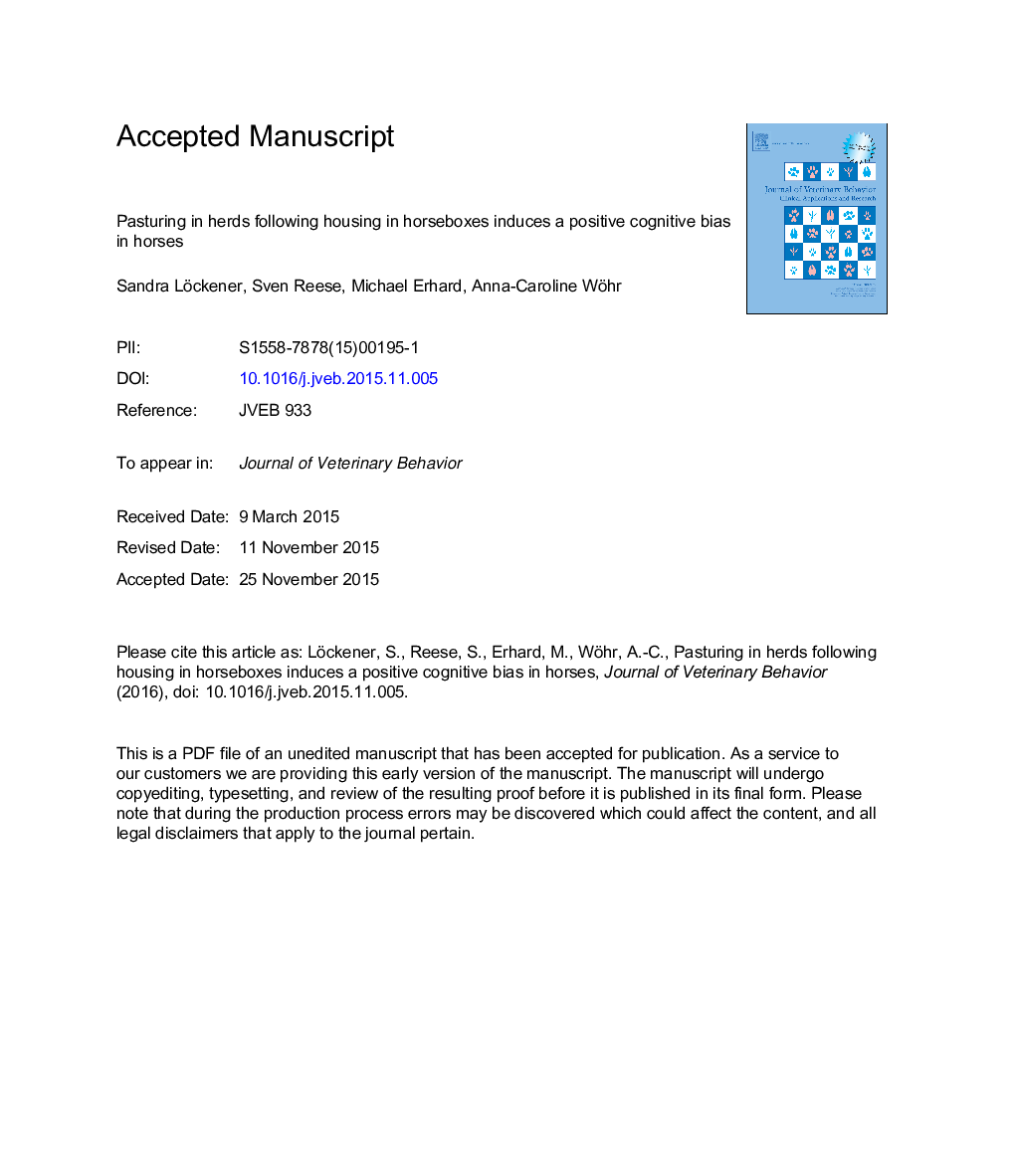| کد مقاله | کد نشریه | سال انتشار | مقاله انگلیسی | نسخه تمام متن |
|---|---|---|---|---|
| 8484299 | 1551605 | 2016 | 23 صفحه PDF | دانلود رایگان |
عنوان انگلیسی مقاله ISI
Pasturing in herds after housing in horseboxes induces a positive cognitive bias in horses
ترجمه فارسی عنوان
تداخل در گله ها پس از مسکن در اسب سواری باعث ایجاد تعصب شناختی مثبت در اسب ها می شود
دانلود مقاله + سفارش ترجمه
دانلود مقاله ISI انگلیسی
رایگان برای ایرانیان
کلمات کلیدی
قضاوت بی عدالتی، تاثیر می گذارد، غنی سازی محیطی، تندرستی، وظیفه تبعیض، اسب،
موضوعات مرتبط
علوم زیستی و بیوفناوری
علوم کشاورزی و بیولوژیک
علوم دامی و جانورشناسی
چکیده انگلیسی
Horses are kept in various housing systems, for example, with conspecifics in horse pens or singly in horseboxes, with or without pasturing. To provide appropriate living conditions for horses, it is necessary to know in which conditions they feel well or unwell. Here, a cognitive bias assessment provides information about an individual's affective state and its well-being. When a positive affective state prevails, animals tend to judge optimistically in ambiguous situations. When a negative affective state prevails, animals judge pessimistically in unclear situations. In the present study, we trained horses on a spatial discrimination task and evaluated their judgment of ambiguous locations when they had access to pastures and contact to conspecifics versus when they were kept singly in horseboxes. Ten days of pasturing and contact with conspecifics after being kept singly in horseboxes for 6Â months induced a positive cognitive bias in the horses. We suggest that horses need to act out certain behaviors like exploration, social interaction, play, or grooming to fulfill their needs. After a time in which they were individually in horseboxes without pasturing and access to the herd, they seem to have a positive cognitive bias once they have access to pastures and conspecifics. This positive cognitive bias effect seems to disappear over time, as horses appear to adapt to the circumstances.
ناشر
Database: Elsevier - ScienceDirect (ساینس دایرکت)
Journal: Journal of Veterinary Behavior: Clinical Applications and Research - Volume 11, JanuaryâFebruary 2016, Pages 50-55
Journal: Journal of Veterinary Behavior: Clinical Applications and Research - Volume 11, JanuaryâFebruary 2016, Pages 50-55
نویسندگان
Sandra Löckener, Sven Reese, Michael Erhard, Anna-Caroline Wöhr,
